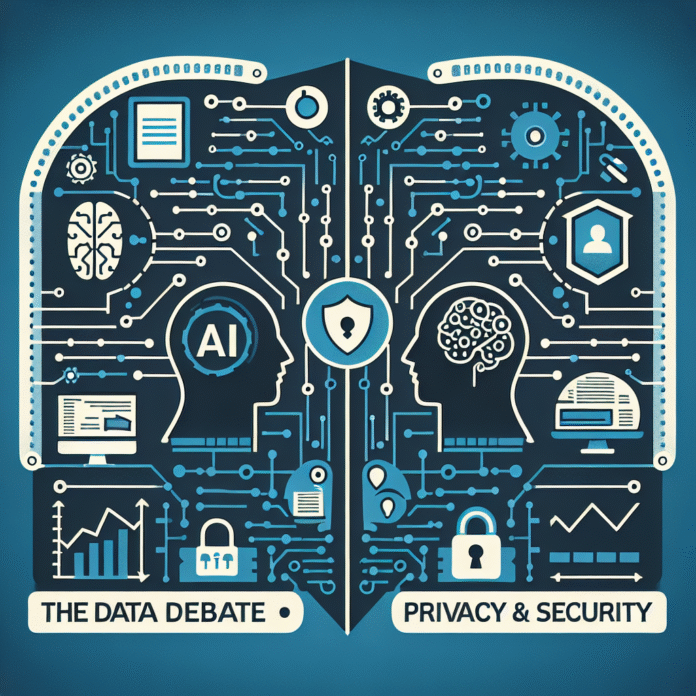<script async src="https://pagead2.googlesyndication.com/pagead/js/adsbygoogle.js?client=ca-pub-5362842976017675"
crossorigin="anonymous"></script>
The Data Debate: How AI is Redefining Privacy and Security
Introduction
In an age where data drives decision-making, the roles of artificial intelligence (AI) and data privacy are more intertwined than ever.
As AI systems become increasingly sophisticated, the balance between harnessing data for innovation and ensuring privacy and security is at the forefront of public debate.
This article explores the complexities of how AI is reshaping privacy and security in our digital landscape.
The Promise of AI
AI technologies have revolutionized various industries, enhancing operational efficiencies, driving personalized experiences, and predicting consumer behavior.
From healthcare, where AI analyzes patient data for better outcomes, to finance, where it detects fraudulent transactions in real-time, the benefits are undeniable.
However, these advancements come with significant implications for privacy and security.
Data Collection: The Double-Edged Sword
AI’s effectiveness largely relies on vast amounts of data. This necessity for data collection raises crucial questions about consent and ownership.
Many users are often unaware of how their data is collected, used, and stored.
As AI systems require more data to function optimally, the potential for misuse or mishandling of this sensitive information increases.
Privacy Concerns
The rise of AI has led to growing unease over privacy issues. The collection, analysis, and utilization of personal data without explicit consent
can infringe on individual privacy rights.
High-profile data breaches and unethical data practices have heightened public awareness and skepticism regarding how organizations handle sensitive information.
Regulatory Challenges
As AI technologies continue to evolve, regulatory frameworks struggle to keep pace. Many countries are still grappling with how to create
comprehensive data protection laws that accommodate rapid technological changes.
The General Data Protection Regulation (GDPR) in Europe has set a precedent, but similar initiatives worldwide remain inconsistent.
Security Implications
Alongside privacy concerns, AI’s impact on security is profound. While AI can bolster security measures through enhanced threat detection
and response capabilities, it can also be weaponized. Attackers may leverage AI to automate and amplify cyberattacks, making them more sophisticated.
This leads to a constant arms race between cybersecurity professionals and cybercriminals.
Balancing Innovation and Security
The debate surrounding AI, privacy, and security emphasizes the need for a unified approach. Companies must prioritize ethical AI practices,
ensuring that privacy safeguards are integrated into AI systems from the outset.
This not only protects users but also fosters trust and loyalty in a technology-driven world.
Conclusion
The intersection of AI with privacy and security presents both challenges and opportunities.
As we navigate this evolving landscape, the dialogue around data ethics will be vital in shaping a future where technology serves humanity without compromising individual rights.
For more related updates- On one side of the debate, proponents argue that AI can strengthen security by detecting cyber threats, preventing fraud, and protecting critical infrastructure with unparalleled precision. On the other, critics warn that the same systems could enable mass surveillance, erode civil liberties, and expose society to large-scale data breaches.





